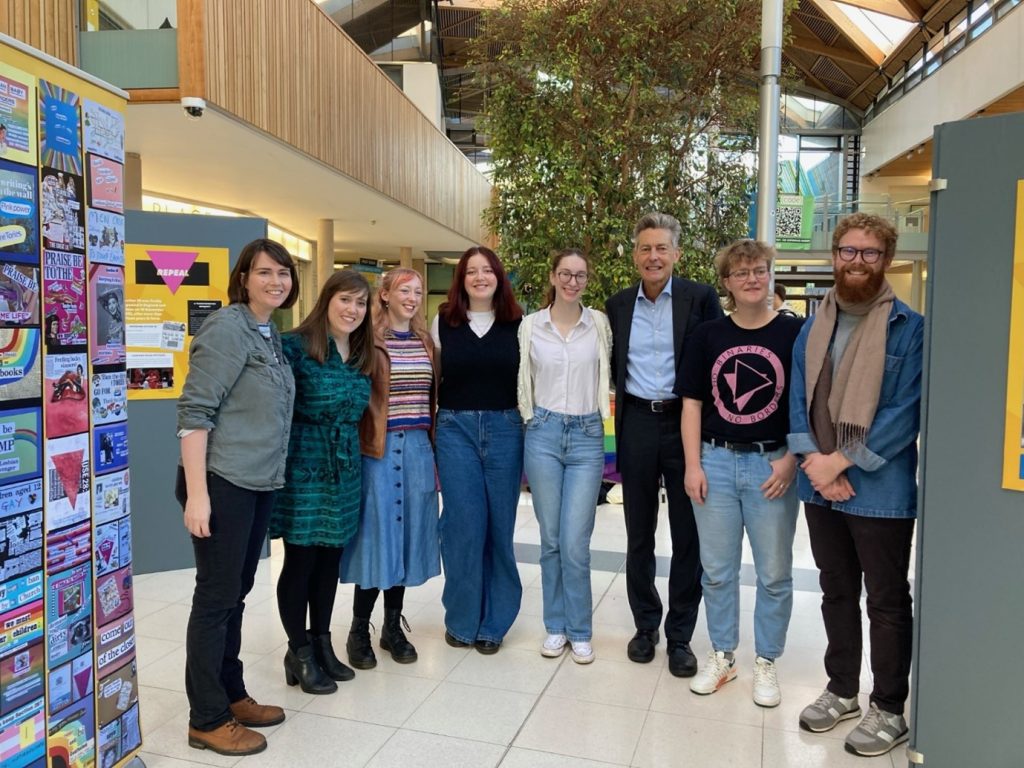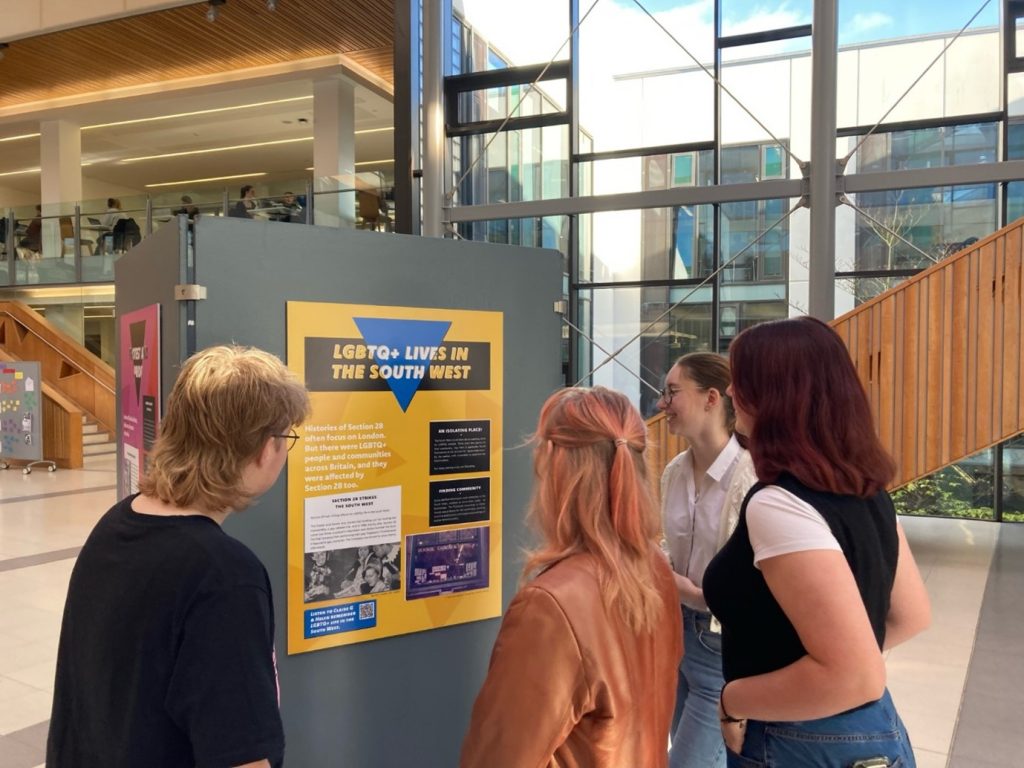From October to early November 2023, I was lucky enough to be a part of the ‘Section 28 and its afterlives’ project. The project aimed to mark the 20th anniversary of the repeal of this homophobic legislation with an exhibition which put the voices and experiences of LGBTQ+ people at its heart. The exhibition was placed in the Forum at the university from 13th-17th November and then moved to Positive Light Projects in Sidwell Street from 17th-23rd November.
What is Section 28?
· Section 28 was a piece of legislation brought in by the government in 1988 and was repealed in 2003.
· The clause prohibited schools and local authorities from “promoting” homosexuality, labeling it as a “pretended family relationship”.
Section 28 perpetuated fear, silence, shame and secrecy. The aims of this project are to promote the visibility of LGBTQ+ people and use their stories to educate, remember and highlight the long shadow that Section 28 has left. This important piece of history therefore speaks now to debates around queer spaces in schools but also to the conversations around trans rights in the UK.
What was my role?
My role as a Digital Humanities Intern has been to work with the oral history interviews to ensure they were ready for an audience. Using Audacity, I was able to cut out background noise, cut clips to be concise and ensure the audio was of good quality. I also prepared the transcripts that would sit alongside the audio on the project website, and QR codes that linked to the website and could be incorporated into the exhibition. The recordings, transcripts, and QR codes together produced fantastic results, allowing people to listen, read and access the material as they walked past but also engage with it in their own time.
To promote the exhibition, I created promotional material in the form of a trailer:
I wanted to capture the emotive nature of the oral histories: the reaction to its repeal, how the legislation impacted people at the time, the extent of this effect and the afterlives of such a damaging policy… not an easy task in a 30-second clip!
I kept the design simple, using only the pink triangle (a key part of both the branding of the project and the symbol of protest at the time) to make the material eye-catching. I wanted to maintain the idea that the voices were front and centre to keep the project cohesive.

I would especially like to thank Chris Sandal-Wilson and his team for their constant support with all aspects of the project. Their vision allowed for an inclusive, thought-provoking exhibition that holds historical significance but also opened up conversations about LGBTQ+ rights and experiences in today’s society.
I’m looking forward to continuing this work with the Section 28 team in 2024.
The Section 28 team with Ben Bradshaw MP
Where can I learn more?
This is a continuing project, which has secured more funding to be able to continue to build a growing collection of oral histories. If you would like to share your experience, you can get in touch through the form on the website
https://s28afterlives.exeter.ac.uk/contact/
Anna Ross- Digital Humanities Intern 2023-2024

